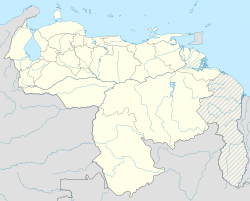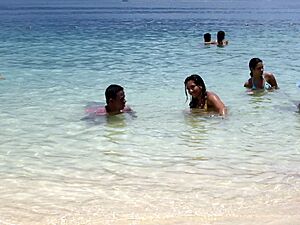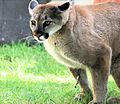San Esteban National Park facts for kids
Quick facts for kids San Esteban National Park |
|
|---|---|
|
IUCN Category II (National Park)
|
|
| Nearest city | Maracay, Puerto Cabello and Valencia |
| Area | 445 km² |
| Established | 14 January 1987 |
| Governing body | INPARQUES |
The San Esteban National Park (also called Parque Nacional San Esteban in Spanish) is a special natural area in Carabobo, Venezuela. It was created on January 14, 1987, to protect its amazing nature and history. The park covers about 445 square kilometers (that's about 172 square miles!).
This park is located in the northeastern part of Carabobo state. It even connects with the Henri Pittier National Park in the nearby state of Aragua. Both parks work together to protect a large area of Venezuelan nature. San Esteban National Park includes parts of the Guacara, Naguanagua, Puerto Cabello, and San Diego areas.
Contents
Discover San Esteban National Park
San Esteban National Park is a fantastic place to visit. It offers a mix of beautiful natural landscapes and important historical sites. You can explore old castles, ancient paths, and even see rock carvings made by people long ago.
Historical Treasures of the Park
The park is home to many interesting historical places that tell stories of the past.
- Solano Castle: This old castle is located in Puerto Cabello. It's a cool place to imagine what life was like many years ago.
- San Esteban Village: This charming village is where a national hero, Bartolomé Salom, was born. You can visit his old house.
- The Old Spanish Road: This historic path, also known as the 'Road of the Spaniards', used to connect the cities of Valencia and Puerto Cabello. It even has an old arched bridge called the Paso Hondo bridge over the San Esteban river.
- Indian Salt Way: This is another ancient path that was used by indigenous people. It goes between Patanemo and Guacara.
- Piedra Pintada (Painted Stone): In the Tronconero area of Vigirima, you can find ancient rock carvings called petroglyphs. These were made by Native American people before Europeans arrived.
- Ecomuseum Villa Vincencio: This museum helps you learn more about the park's history and nature.
- Hacienda Quinta Pimentel: An old estate with its own unique history.
- Las Trincheras Hot Springs: These are natural thermal baths where you can relax in warm, mineral-rich water.
Amazing Animals of San Esteban
San Esteban National Park is a home for many different kinds of animals. The park helps protect these creatures and their natural habitats.
See also
 In Spanish: Parque nacional San Esteban para niños
In Spanish: Parque nacional San Esteban para niños
 | Bayard Rustin |
 | Jeannette Carter |
 | Jeremiah A. Brown |







